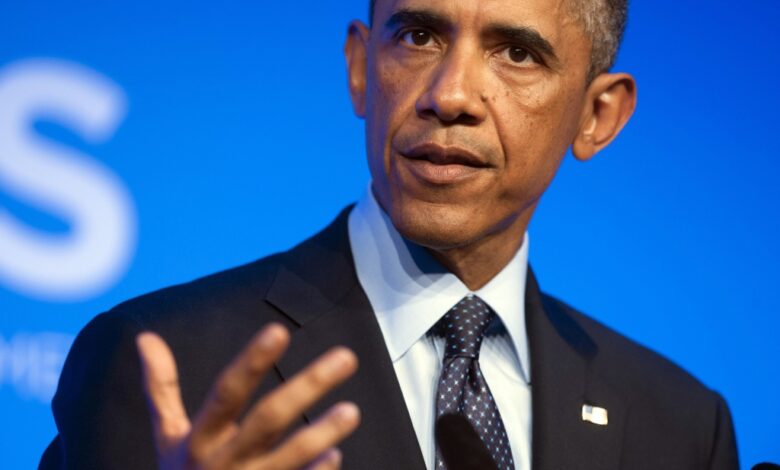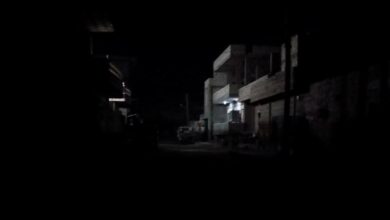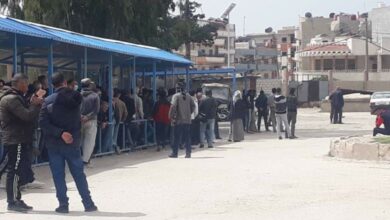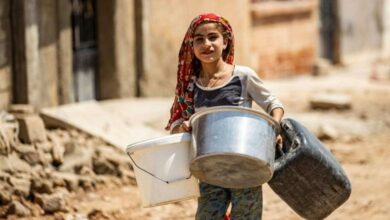
Iraqi forces, aided by U.S. airstrikes, launch ground offensive to secure dam in Anbar
BAGHDAD — Backed by U.S. airstrikes, Iraqi forces launched a ground offensive Sunday to secure their country’s second-largest dam from Islamic State militants, marking the expansion of the American air campaign to Anbar province.
Iraqi special forces, allied tribesmen and local police made gains near Haditha, home to a strategic hydroelectric dam, after a U.S. bombing campaign began in the area on Saturday night.
The extremists have been attempting to capture the city and the dam since late June, with Iraqi security forces and tribesmen holding back the near-daily assaults, said Khalid Salman Rasif, head of Haditha’s local council.
“The Iraqi army and the tribes have been surrounding Haditha to protect it, but today the special forces joined and the operation started to liberate the area,” he said. “We are on the attack.”
Brig. Gen. Abdulwahab al-Saidi, a special forces commander based in Anbar province, said the ground offensive was launched about 6 a.m. Iraqi special forces are calling in targets for U.S. airstrikes, he said.
The targets of the operation are outlying villages and towns controlled by the Islamic State, including Barwana, just outside Haditha on the eastern banks of the ancient Euphrates River.
State media reported that Iraqi forces retook Barwana on Sunday afternoon, but the fluidity of the situation was underscored when the province’s governor, Ahmed al-Dulaimi, and a provincial council leader toured the newly secured territory.
A mortar round landed about 15 feet from the two politicians as Saidi escorted them, the special forces commander said. Both men were injured by shrapnel and airlifted to Baghdad, but the injuries were not life threatening, officials said.
“This isn’t going to affect the spirit of the soldiers. We will continue until liberation,” Rasif said. “The security forces are moving forward, but the road is full of bombs and the clashes are still going on.”
The Pentagon said Saturday’s late night airstrikes were carried out against targets near Haditha dam, which stretches more than five miles across the Euphrates in western Iraq, about 150 miles northwest of Baghdad.
The attacks marked a sharp escalation of the U.S. military campaign that began Aug. 8, when President Obama ordered the Pentagon to intervene in Iraq to stem the rapid advance of Islamic State, a well-armed Sunni extremist group that has swept across the north and west of the country.
Officials from U.S. Central Command, which oversees military operations in the Middle East, said a mix of fighter and bomber aircraft carried out four attacks Saturday near the dam. The strikes, they said, destroyed five Humvees that had been captured by Islamic State militants from Iraqi security forces, another vehicle and a checkpoint.
U.S. officials said all their aircraft exited the area safely. Central Command did not specify what types of aircraft were deployed or where they flew from. But the U.S. military has been spearheading its campaign in Iraq from three air bases in the Persian Gulf region.
In remarks to reporters Sunday during a visit to Tbilisi, Georgia, Defense Secretary Chuck Hagel called the Haditha dam “a critically important facility” and said the strikes “are very much in line with what President Obama said were the guiding principles of military action in Iraq.”
Hagel said the operation was planned and coordinated with Iraqi troops on the ground. The Iraqi government had been pressing the U.S. military to call in airstrikes around Haditha for the past few weeks.
For now, Obama has imposed tight limitations on the U.S. military operations, directing the Pentagon to take action only to prevent civilian massacres and other humanitarian disasters, or to protect U.S. personnel and diplomatic facilities in Iraq.
Those actions are intended to buy time until the White House and Pentagon can put together plans for a broader and more extensive military campaign against the Islamic State. Obama has said that strategy would rely heavily on cooperation from the often-dysfunctional Iraqi government, Kurdish forces, NATO allies and other countries in the Middle East.
Before Saturday, the U.S. military had conducted 133 airstrikes against Islamic State forces, all in northern Iraq. The bulk were carried out to help Kurdish and Iraqi government troops retake control of the Mosul dam, the country’s biggest, which holds back the Tigris River but had been captured by the Islamic State in early August.
Other strikes have been aimed at preventing Islamic State fighters from marching on Irbil, the Kurdish regional capital, and massacring refugees from Iraqi minority groups. U.S. military aircraft have also conducted airdrops to deliver food, water and medical supplies to tens of thousands of refugees under siege by the Islamic State.
Saturday’s strikes by the U.S. military were the first in Iraq’s Sunni-dominated Anbar province, which has been under the control of the Islamic State for nearly nine months.
U.S. commanders have long viewed the Haditha dam as critical ground. Strikes to save it from Islamic State fighters harken back to the early days of the U.S. invasion in 2003 when American special operations forces were sent into Iraq to seize the dam to prevent Saddam Hussein’s troops from destroying it and flooding Shiite cities to the south.
U.S. officials said Saturday’s airstrikes around Haditha were conducted under Obama’s previous authorization to prevent humanitarian disasters. Had the dam fallen into extremist hands, they said, Shiite areas to the south once again would be at risk of flooding and Iraq’s electricity supply would be endangered.
Like much of Anbar province, the area around the dam saw heavy fighting throughout the U.S. occupation, which ended only when Sunni tribes in the area turned on al-Qaeda-affiliated fighters and formed U.S.-supported tribal militias.
Senior U.S. officials have expressed hope that if Iraq’s prime minister designate can form an inclusive government in Baghdad, it could provide some Sunni tribal leaders, chafing under harsh Islamic State rule, to rise up. Anbar province is significant because since 2003 it has been the heartland of most of the major Sunni insurgent movements.
The town of Haditha is also known as the site of an alleged massacre in which U.S. Marines are said to have killed 24 unarmed Iraqi men, women and children. The region lies in the Euphrates River Valley, which during the Iraq war was a major supply line for insurgents moving people and explosives from Syria into Baghdad.
It is unlikely that airstrikes around the Haditha dam by themselves would do anything to shift the balance of power in the region.
The Islamic State has quickly emerged as a powerful insurgency, drawing strength from thousands of foreign fighters who have joined its ranks in Syria and Iraq. The group has declared itself the ruler of a modern-day caliphate while embracing brutal tactics, including mass killings of Iraqi minority groups and the beheadings of two American journalists.
The movement has fought the army of Syrian President Bashar al-Assad to a standstill. This spring and summer, it pushed across Iraq and closed within about 50 miles of Baghdad, overrunning Iraqi government troops and seizing their U.S.-made weapons.
Obama has vowed to “destroy” the group, but has also promised not to send U.S. ground troops back into combat in Iraq — less than three years after the withdrawal of U.S. troops.
Since June, however, he has authorized the deployment of 1,100 U.S. troops to Iraq, most of them to defend the U.S. Embassy in Baghdad, the international airport in the capital, and the U.S. Consulate in Irbil. Others have been assigned to coordinate and advise Kurdish and Iraqi security forces.
Jaffe reported from Irbil. Mustafa Salim contributed to this report.
washingtonpost




